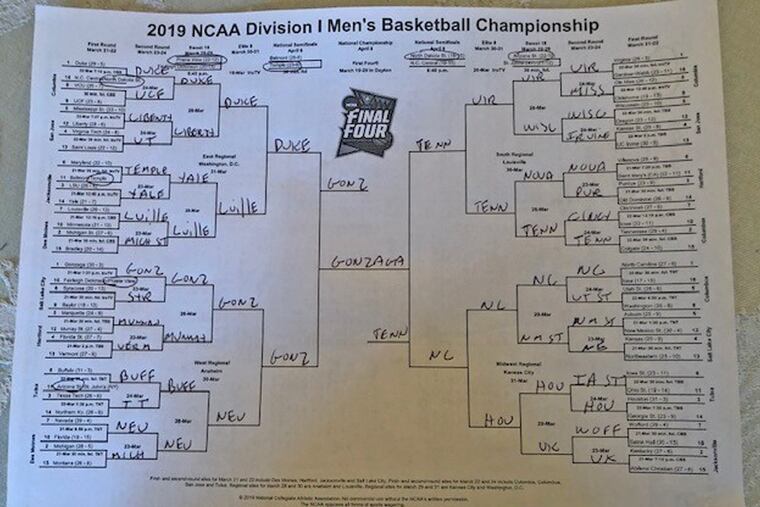NCAA official says men’s and women’s basketball tournament brackets will not be released
NCAA vice president Dan Gavitt said he understood people wanted to "fill the void" after the men's and women's tournaments were canceled, but felt it would be unfair to release brackets after an incomplete season.

Selection Sunday. It had been marked on every college basketball fan’s calendar since the first shot went up last November, but was made irrelevant last Thursday when the NCAA announced it had canceled its men’s and women’s basketball tournaments because of the coronavirus pandemic.
Or maybe not. Fans still wanted a bracket reveal to know what the people who select and seed the teams in each championship were thinking. Mid-major teams who already had qualified in their conference tournaments craved a bracket to put in their trophy case for posterity.
Alas, with no tournaments, the NCAA announced Sunday that there would be no men’s or women’s bracket released.
In a statement, NCAA senior vice president of basketball Dan Gavitt noted that 19 men’s and 18 women’s conference tournaments had not been completed, and more than 200 games — 132 for men, 81 for women — were never played. He said as of Thursday, the men’s committee had just begun its work, and the women’s committee had not yet started.
“The important work of the basketball committees is to set up competitively balanced brackets to determine national champions,” Gavitt said. “I don’t believe it’s responsible or fair to do that with incomplete seasons, especially for tournaments that unfortunately won’t be played.”
Gavitt acknowledged he understood why people wanted brackets released because “all of us want something to fill the void we’re feeling” over the NCAA tournaments’ cancellations.
“I have heard from many coaches and athletic directors who are trusted colleagues and friends that would like to see brackets released to recognize the successful seasons of their teams and student-athletes and to see who and where they would have played,” he said.
“Players and coaches want to see their school name on the bracket. Members of the media want to dissect matchups. Bracketologists want to compare the work of the committees versus what they’ve predicted. Fans are curious for the same reasons. However, anything less than a credible process is inconsistent with the tradition of the NCAA basketball championships.”
Gavitt went on to say there “is not an authentic way to produce tournament fields and brackets at this point without speculating, and that isn’t fair to the teams that would be positively or negatively impacted by manufacturing March Madness.”
Gavitt said the decision was his, and that the basketball committees concurred.
On Thursday, before the announcement to cancel the tournaments were made, Gavitt said he had worked on alternative models for a truncated event with 16 teams over one long weekend but that the proposal received “mixed interest” from the committees.